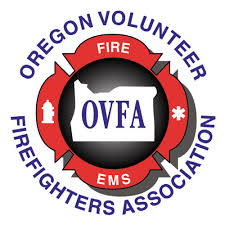Oct. 4, 2022 – RRVFEC Zoom – Center For Nonprofit Law meeting minutes
Members: Walt, Katherine, Kathleen, Reta
Guest: Stephanie Dolan (she/her) Attorney
Center for Nonprofit Law, PC,
PO Box 10008
Eugene, OR 97440
541-342-6336 (ph)
541-484-3926 (fax)
This group has been in business for 30 years and serves only Nonprofits. Stephanie has experience in working with tribal business and other non-profits for 20 years. She is from Tangent where she lost her law office to the recent wildfire.
Center for Nonprofit Law offers a package that includes walking us through all the paperwork and planning needed to establish and obtain a 501c3 status plus includes 6 months of legal advice and training. $4475
General information:
A 501c3 organization can influence legislation including the drive to pass a district formation ballot but is limited to spending 20% of funds on political action. It cannot endorse candidates, etc.
The main criteria is that we must have a goal to alleviate a burden from the government.
Steps:
Incorporate in Oregon, determine a board, hold an organizational meeting (after that meeting we are in business), keep minutes, design bylaws, establish a bank account, elect officers.
Center provides 2 sessions of training for board members to cover legal aspects.
As soon as finished we can start fundraising and/or grant searches. As little as 2 weeks.
Then we will apply for federal IRS status as 501c3. Will take 2+ months but is retroactive to the corporation date.
Questions:
What kind of trouble do nonprofits experience? Financial control and/or embezzlement – Training is provided in trying to avoid this problem.
What do we do about liability concerns? We can purchase director or board insurance. There is also statutory protected status for volunteering and doing work in good faith. Also homeowner/renter insurance often offers liability insurance for low fees (usually best resource).
Volunteers with Fire Trailers? Homeowner/renter insurance often covers volunteering. Regular safety trainings would provide more protection under Good Sam laws and statutes.
Money to start? People can loan money to group and during the first official meeting of the board they would vote to recognize that monies were given and they were loans. If a person wanted to forgive part or all of the loan it would be a donation to the nonprofit. Or the board could pay off the loan.
Goals? When writing goals, we need to be sure they are broad enough to cover future ideas.
Advantage of 501c3? We can use the nonprofit status to collect monies to pay for start-up fees and then later when we have a Fire District or annex to SLFD or contract with SLFD use donation monies to fund safety trainings, etc.
When fund raising or accepting funds, we must state we have filed for tax exempt status and expect to receive it.
The group would be subject to more liability if no 501c3. Volunteers could be covered and paid for with donations. (We should start shopping for insurance possibilities.) Also the donations could be used to provide trainings for community and volunteers.
What if getting fire protection doesn’t work out? Dissolving is much like an uncontested divorce. Need to go before a judge and assets would be distributed to another 501c3.
When should we get started on a 501c3? ASAP! If we get the incorporation done before the end of the year, the low income number could be averaged with the next 2 years to be sure we don’t earn over $50,000 per year to continue using an easy tax reporting form.
Actions
Discussion at full group meeting, Oct. Vote. If yes, solicit loans to cover costs.
Next meeting
Thursday, October 13, 5:30
For next meeting, Reta will try to get access to a room at the school. If not meeting will be at the Katherine and Kirk house. We need internet access for zoom meeting with Jordan and a group meeting afterwards.
Bring your laptops and pads to sign in for zooms.
Reta
